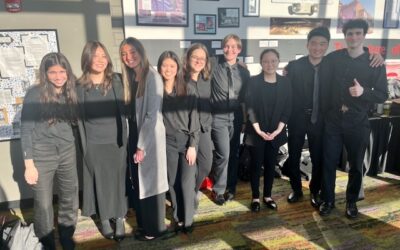All of us have something special inside, and while we may not find a means to communicate or release it, the tendrils of human connection and filaments of experiential learning forge muscle memories unique to each of us. Sophie B. Hawkins was of the latch-key kid generation, and spent her days running barefoot around Central Park in an entirely different Manhattan than exists today, where crime was rampant and the rich and poor moved on the same avenues.
“It wasn’t Manhattan, the glitzy black-and-white-movie Manhattan of lore. It wasn’t the ’40s movies, it was just really this basic place where everyone was equal,” Hawkins recalls. “It wasn’t as crowded, and there were all sorts of people, but we were all just there together.”
She’s been thinking about her home, her place and the things that define her as she’s made her way from her last album, 2012’s The Crossing, to her new release, Free Myself, an album dedicated to the dirty work of being present, hopeful and forward-moving to the extent possible, and sympathetic to yourself amidst the process.
It’s a journey that coincided with the end of a romantic relationship that had been intertwined with her professional career through her partner/manager, who was the one finding her new ways to connect with different audiences. This was part of how Hawkins wound up playing Janis Joplin in Gigi Gaston’s play, Room 105: The Highs and Lows of Janis Joplin.
When the relationship ended and Hawkins returned home from California, it inaugurated a stretch of self-discovery and further exploration during which she penned two musicals, a novel and continued to write songs, even if she wasn’t releasing them.
“That relationship was with the manager, who was always looking for new ways for me to be relevant. And maybe there’s a fault in that maybe I should have just kept being myself and not tried to fit in,” Hawkins says from this new vantage.
By the time she was ready to start recording the new album she’d accumulated dozens of songs and the challenge became whittling them down into a set of songs and ideas that fit wholly together.
“When I was writing for Free Myself, a lot of that was processing the relationship ending and moving back home and now being a mom, and then again, I would have a daughter, so that was huge,” Hawkins says. “ But… they didn’t fit, and that was where the last couple of years was like, you have all these songs, but not all of them fit.”
Not fitting is something Hawkins herself might be accused of. She arose from such a sort of singular set of experiences it’d be fair to wonder if anyone in similar circumstances might go so far. A free spirit from youth, her parents helped instill an artists spirit between the latch-key kid laissez-faire and her father’s anit-materialism: “My father always said never buy anything, never own anything. Too much responsibility.”
Another facet that makes Hawkins unusual is her musical background. She attended Manhattan School of Music as a percussionist and even landed a gig playing a European tour with Bryan Ferry, before he fired her two weeks in. That disappointment was actually an impetus for her to more resolutely be herself. She threw herself into songwriting, making the somewhat uncommon transition from backbeat to the microphone.
From there she’d write her big hit, “Damn I Wish I Was Your Lover,” adding it to a wealth of demos, aware in her own heart that it was a huge hit, even when her friends were deeply unimpressed.
There was one person who heard it and told her she was good enough right now to be a star, and believed in the song. Ralph Schuckett, who died last April at 73, had been a founding member of Utopia with Todd Rundgren, and played keyboards on albums by James Taylor, Carole King and Hall & Oates. He helped her clean up the demos and created the string arrangements on her debut album. By the time he was finished there were seven labels after her.
It wasn’t even that the demos were bad. “[He said] ‘The demos are fabulous,’” recalls Hawkins. “’However, we have to clean them up because the stupid record industry won’t hear them.’ …He never got the credit and he died a very unhappy life and a very unhappy death and it’s really tragic.”
The whole process of becoming a pop icon is also weird, especially because of the sort of haphazard quality of her image. It wasn’t something she spent time brooding over, certainly not like an artist would today. It was a sort of coincidence born of the fact that she took so little care of her image in those days.
“It’s true, I’m extremely private and yet I push out this image. And I do notice that when people, they really, really identify with my image. I don’t identify with my image as much as they do. And that’s definitely been so interesting. What a learning curve,” she chuckles. “That was just me doing that, because I needed to do something.”
That’s how it happened. Like her dad had suggested, Hawkins had bothered too much with stuff.
“I had no clothes. I didn’t care about clothes. One of my producers, he gave me his old shirts, because he was tired of me coming to the studio wearing the same t-shirt day after day after day,” she says. “Then it was like, we have to make a video. What’s your image? Well, I thought, ‘I really love Mowgli in The Jungle Book. I’m going to wear a cheesecloth.’ And they were like, what? Then they had to redo that video for a number of reasons. But then I had to wear clothes. So it’s really interesting the first video I didn’t wear any clothes, I wore a cheesecloth.
“The second video I actually had to come up with an image, and I chose my brother’s jeans because I love the way they looked on me and what they represented, you know, like the Jimmy Dean quality,” she continues. “They were like they represented everything, like Steinbeck, everything that I wanted to experience and hadn’t experienced yet because I was still in New York. And then the flannel shirt just basically came from me, very similar to Billy Eilish. I did not want to be objectified. I didn’t want people looking at my boobs and judging them, and then so that’s where that image came from.”
Hawkins’ 1992 debut Tongues and Tails was a smash international hit, powered by the aforementioned breakout single and smaller hits, “California Here I Come,” and a cover of Bob Dylan’s “I Want You.” Her second album, Whaler, was able to build on the first album and did even better, with the hit “As I Lay Down,” which the label had objected to putting on the first album, and was almost an afterthought third single before blowing up on Adult Contemporary, after “Right Beside You,” and “Don’t Don’t Tell Me No” somewhat disappointed.
But by the time came for her Hawkins’ third album circumstances had changed. The overwhelming success of female singer/songwriters which had engendered the creation of Lilith Fair had receded a tad, and her old label, Columbia, had been bought up by Sony. The late nineties are notable both for how the music scenes were splintering as commercial radio began upping commercial loads and tightening playlists, driving music lovers away from terrestrial radio and toward file-sharing.
Sony picked a fight with Hawkins over one of her tracks. Somewhat incomprehensibly, with Americana about to take off so hard as to forge its own genre, Sony was demanding she pull a banjo track from her song “Lose Your Way” off her third album, Timbre, because Sony said mainstream radio won’t play banjos. (Gillian Welch, Line Two!) Hawkins stuck to her guns – after all she’d written the song on banjo and it was integral to the sound in her mind – and Sony backed down, then silently quit on her. The album received very little promotion and she wound up dropped.
“Sony just didn’t want to support me as an artist,” she says. “It wasn’t about me…. It was about cutting their losses, really. They wanted to go in a different direction.” (You must forgive them, Boy bands, somehow, seemed very bankable at that moment.)
Since then she’s been on her own, and it’s been a journey. She spent a couple years working on a musical with Broadway pros Kristin Chenoweth and Thomas Mann that came within a whisker of happening but at the last minute people got greedy and it fell apart. But that didn’t dissuade her, and she’s working on another musical. She also wrote a novel, though she hasn’t found a publisher. It’s just part of the process of following her heart after years of trying to be relevant to something outside her.
Yet it was also suggested that it might be useful to connect the music of her new album to the albums that defined her as an artist. Not necessarily to go back but to find some of that initial inspiration or connective muscle and ligaments.
“She said go back to the DNA. What would Sophie B. Hawkins of Whaler do now? And I said, ‘Well, you know, I’m not the same person. But I understand what you’re talking about,’” she says. “What will my fans who loved Whaler and Tongues and Tails, how will they relate to me now? They’re not going to relate to all these other things I’ve been doing. They don’t care about them. What they want is my new music and the best version of it. And it really helps focus me.”
At 58, Hawkins is ready for her last act, and wants to really put her whole self into it. This is part of the idea behind Free Myself, making room for something new to emerge.
“I want to spend the third act completely leaving behind work that represents myself and I don’t even know what myself is, but I want to find that fantastic thing that was there. It’s always there initially but I want to go forward even more,” she says. “I only have 20 years left to do something unique. It takes a lot and I have actually said to myself, ‘I don’t care if I sell tickets. I mean I will show up if I do because I love the people who go to my shows, but on the other hand what I want to do is really leave something behind that is unique and special to me.”
Sophie B. Hawkins with Jenn & Kasey Minuito, Sunday, July 9, 7pn (5pm doors) at the Updike Room at the Greenwich Motel. $45. 162 Main St, East Greenwich. 884-4200. www.updikeroom.com
Chris Parker is a freelance journalist (The Guardian, Undark, Daily Beast, Billboard) and author of the book, King James Brings The Land a Crown, about the Cleveland Cavaliers’ 2016 championship. He lives in Providence.






 Subscribe
Subscribe